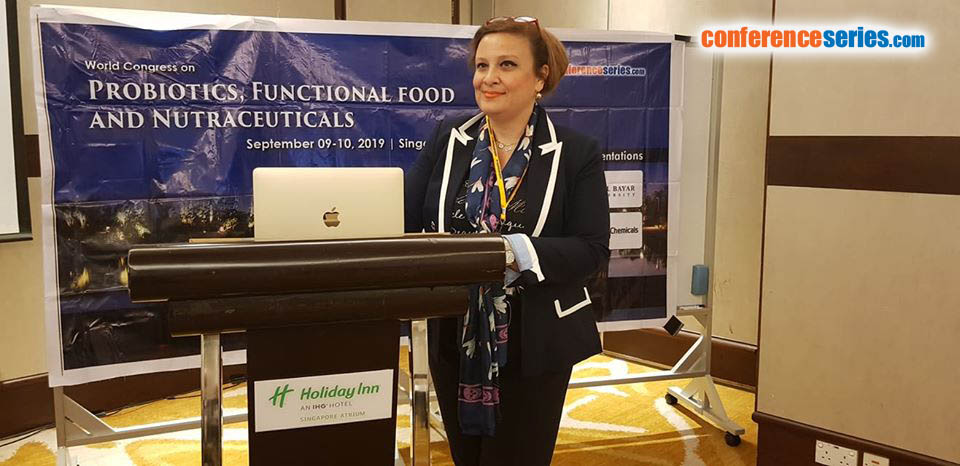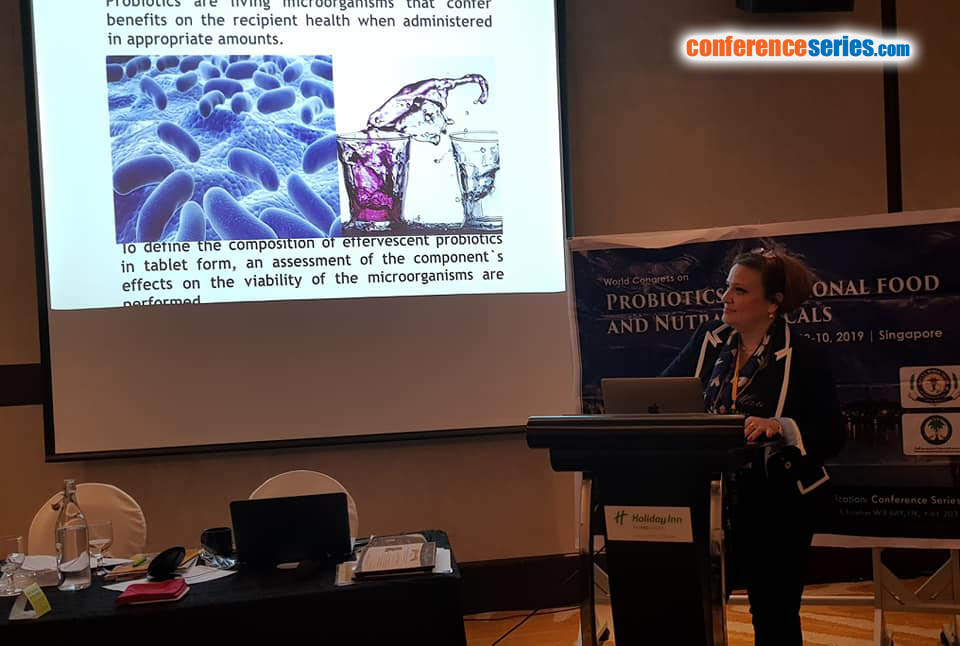
Ozlem Tokusoglu
Celal Bayar University, Turkey
Title: Fruit and vegetable based functional beverages, probiotic dairy beverages and fortified beverages with bioactives: Anticarcinogenic implications and commercial trends
Biography
Biography: Ozlem Tokusoglu
Abstract
It is recommended drinking six to eight glasses of water per day owing to water makes up 60 percent of our total body weight but many people find staying adequately hydrated to be a challenging task. Recently, there has been growing recognition of the key role of foods and beverages in disease prevention and treatment. Especially, the production and consumption of functional beverages has gained much importance as their providing a health benefit beyond the basic nutritional functions. Functional beverages include an ingredient that gives that food health-promoting property over and above its usual nutritional value. Those may classified as fruit and vegetable based functional beverages, probiotic dairy beverages and fortified beverages with bioactives. With current trends, their functional properties, anticarcinogenic implications have been increased based on commercial demands. Functional beverages can be manufactured directly from fresh fruit and vegetables included bioactive or can be formulated by bioactive enhancing and fortifying. Bioactive compounds potentially extractable from the aimed plant foods and plant byproducts contain majorly phytochemicals, fibers, natural flavor constituents, sugars, polysaccharides, proteins and its derivatives and can be fortified to beverages and called fruit and vegetable functional drinks, if fortify by protein concentrate, whey protein isolate, milk protein concentrate, probiotic addition and other dairy ingredients, they are called as dairy functional beverages. Also dairy functional drinks can be manufactured for human health. Bioactives in dairy beverages have many functions as antimicrobial, antithrombotic, antihypertensive, opioid, immunomodulatory, antioxidant related to gastrointestinal system, cardiovascular system, nervous and immune systems. Bioactive constituents as anticarcinogenic peptides are associated with chemopreventive properties, reduction of tumor proliferation as well as apoptosis. Cytotoxic milk peptide lactoferrin (whey proteins) showed positive efficiency against cancer cells. Breast cancer treatment based on the lactoferrin utilization which results the inhibition of cancer cells through suppressing signaling of nasopharyngeal carcinoma cells. Peptides derived from beta-casein (isoleucine-proline and valine-proline-proline) have been acted the hypertensive ability and characterized as potentially effective against cardiovascular diseases. Dietary casein and whey-based milk peptides and protein hydrolysates showed a vital role in maintaining immune system by the IgG antibodies production inducing the proliferation of spleen lymphocytes through mitogen inhibition, depending upon the availability of sialic acid. At present, beverages are the most active functional food category due to their convenience and possibility to meet consumer demands for container contents, size, shape, and appearance, as well as ease of distribution and storage for refrigerated and shelf-stable products. The design and development strategies of functional beverages requires multistage processing which takes into account various parameters including organoleptic acceptance, physical and microbial stability, chemical and functional properties, cost and distributing strategies. From the nutrition perspective, functional and nutraceutical beverages has been increased great attention for healthy and safe bioactive constituent utilization.



